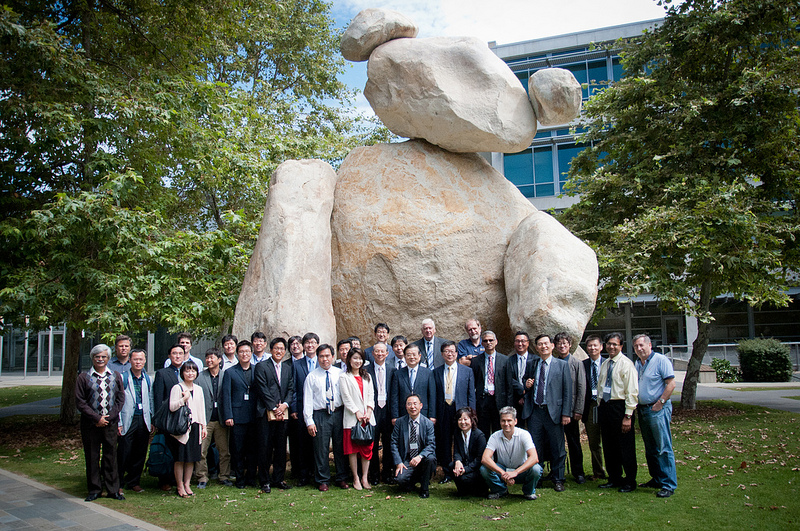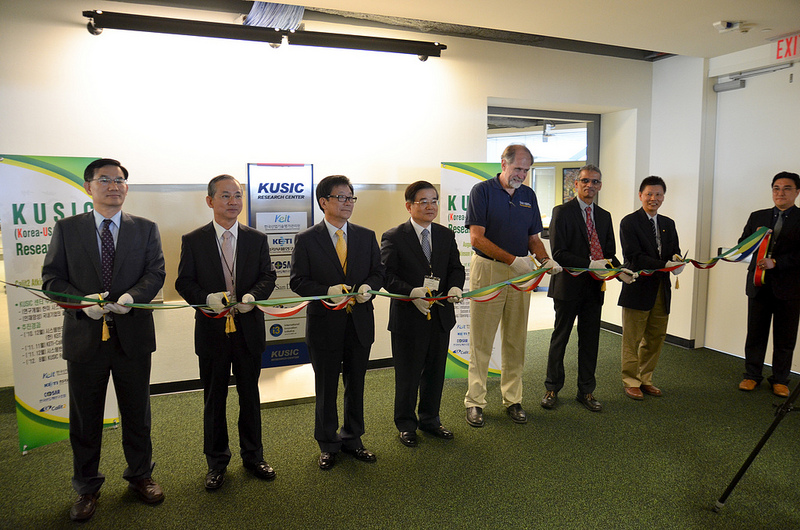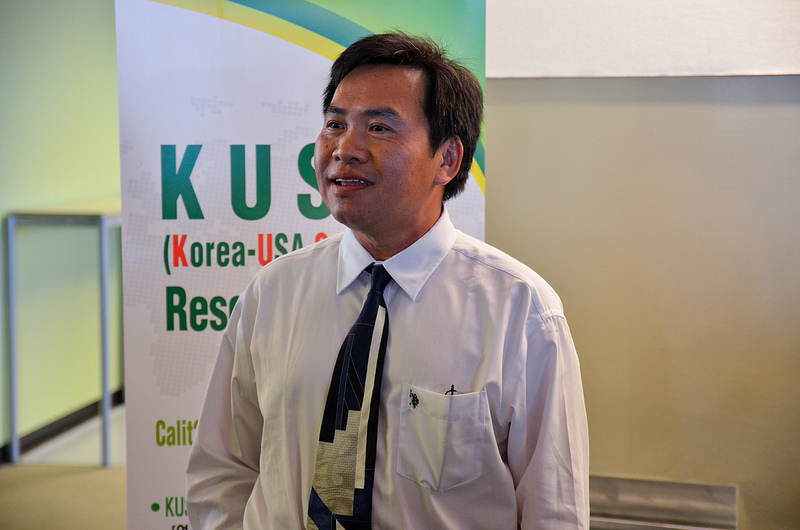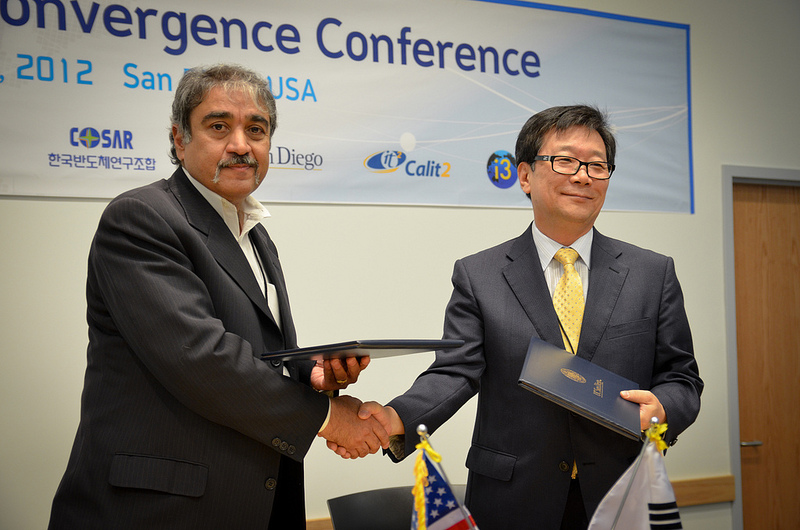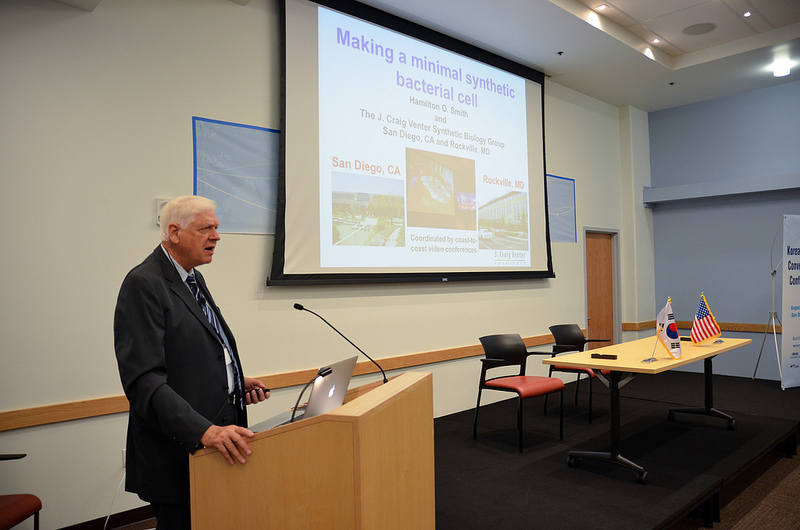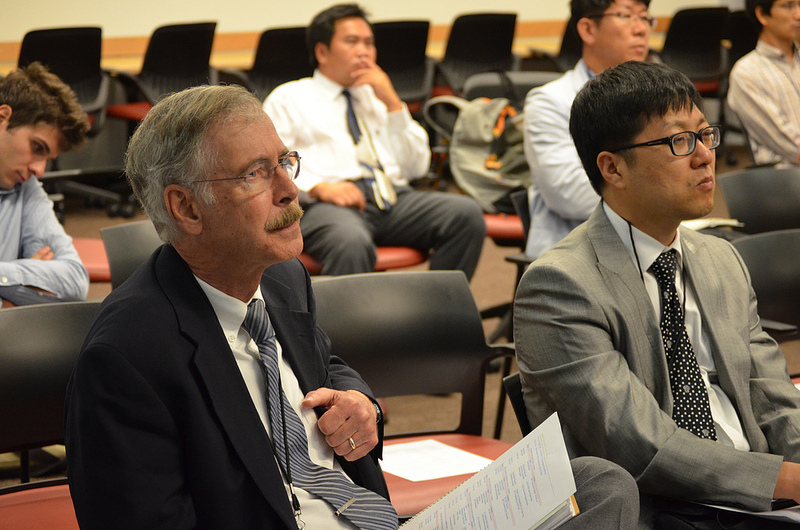California Research Institute Launches International Innovation Initiative at UC San Diego
San Diego, Sept. 26, 2012 -- There is a new home base for visiting researchers at the University of California, San Diego, and it also serves engineering and other faculty members who need international funding to help get new technologies closer to commercialization.
|
“It is critical that the university find new ways of engaging with international partners in the government and private sectors to fund advanced research, especially in a time of decreasing state resources,” said UC San Diego Chancellor Pradeep K. Khosla. “This gift is evidence that even a high-tech economy like Korea’s can benefit from seeking out partnerships with world-class innovation centers such as Calit2 and UC San Diego.”
While the initial funding has come from Korea, i3 exists to broaden international participation in the initiative strategically, and to provide program infrastructure for ongoing projects. To that end, a central office in Atkinson Hall has been established with a program manager (Angela Chen) supporting i3’s program infrastructure design, strategy and outreach, and a program manager (JJ Hwang) for i3’s inaugural visiting fellows from Korea, ongoing project management needs, and outreach. The program management office will engage in dialogue with various countries.
|
Funding for i3 supports two types of aims. The first is a professional education program under which Calit2 hosts residencies of up to one year for engineers and research executives from private corporations, research laboratories or government institutions for varying lengths of stays. The inaugural class of fellows from Korea will be working throughout the year on campus in various labs of the Jacobs School of Engineering.
“We are creating a new innovation space that is both local and international – leveraging UCSD’s people and resources in new and exciting ways beyond what was previously available,” said i3 faculty director Truong Nguyen, a professor of electrical and computer engineering in the Jacobs School. “Our goal is to drive specific areas of innovation aligned with Calit2 and UC San Diego strengths by connecting within an interdisciplinary framework that creates international interactions among researchers and yields development initiatives and viable ventures.”
|
“We are making every effort to create a continuous collaboration model within i3, because both sides can learn a lot from each other,” said Ramesh Rao, director of the Calit2 division at UC San Diego. “These projects must also pass a litmus test by demonstrating that any ensuing innovations could take advantage of the rich San Diego technology ecosystem and find their way to the marketplace in the not-too-distant future.”
The first four such projects fall under the category this year of system-on-chip development, or ‘System IC’, as it is popularly known in Korea. They were inaugurated under the banner of the KETI’s Korea-USA System IC (KUSIC) research collaboration, announced at an Aug. 28-29 workshop hosted at Calit2:
- Computer Science and Engineering professors Rajesh Gupta and Ryan Kastner are working on wireless high-definition video signal transmission for consumer electronics, together with research staff at Technology Leaders & Innovators (TLi), a leading system-on-chip design company in Korea.
- Electrical and Computer Engineering professors Mohan Trivedi and Nuno Vasconcelos are working in the field of computer vision and robotics to develop object-recognition algorithms for advanced driving-assistance systems. The PIs will liaise with researchers at the Korean company NextChip Solution.
- Electrical and Computer Engineering professors Peter Asbeck and Paul Yu undertake research in the field of renewable energy and power semiconductors (partnered with KETI). In particular, they are developing semiconductor device and circuit technology to provide efficient power converters, with particular focus on high-frequency operation and high-output accuracy.
- Rady School of Management professor Vish Krishnan and i3 Manager and systems ecologist Angela Chen are analyzing the electric vehicle (EV) market and regulatory environment for energy reduction, with particular interests in product and supply-chain optimization for EV component technologies, as well as creating a consumer and regulatory engagement model for the EV market ecosystem to assess decision-making for sustainability. The researchers are partnered with Korea Automotive Technology Institute (KATECH), which supports the Korean automotive industry’s R&D.
|
Adding to the existing scope, KETI also signed a Memorandum of Understanding in late August with UC San Diego to promote research collaboration in three other fields (with faculty leads in parentheses): robotics in education (Truong Nguyen), media processing (Gert Lanckriet), and energy-efficient power amplifiers (Peter Asbeck).
Corresponding researchers from KETI will partner with the three faculty leads, who presented their planned research during the Aug. 28 official ceremonies to launch i3, which included the formal signing of the MoU by Chancellor Khosla and KETI President Kyung-Won Kim.
|
The following day, faculty members from the first set of four systems-on-chip projects participated in the inaugural i3 ICT Convergence Symposium in Jacobs Hall on the UC San Diego engineering campus.
“The KETI-Calit2 international collaboration truly reflects a strategic partnership for accelerating innovation and shortening the time to product development and commercialization. International collaboration across public and private sector is a challenging task. Building an open and continuous dialogue will be critical to the success of the KETI-Calit2 collaboration, and it will be instrumental in creating new projects to strengthen the i3 program,” said i3 manager JJ Hwang.
|
“San Diego is a city with deep sectored capacities for innovation and entrepreneurship and UCSD is an important part of California’s history of innovation in nanotechnology, life sciences, information technology, and telecommunications,” said i3 manager Angela Chen. “This is where our competitive advantage shines. Investment in Calit2 programs such as this one will ensure UCSD plays an important role in the future of startup innovation in San Diego and abroad.”
The new program has potential to foster academic ties across traditional departmental silos and to remove structural boundaries between academic and industry innovation at UCSD. By encouraging symbiotic partnerships among international governmental and non-governmental agencies, university researchers and local businesses to accomplish innovative solutions, each team's year-end results aim to meet today’s market needs within San Diego’s innovation ecosystem. Housing this initiative as part of Calit2 enables international participants to form long-term partnerships and work side-by-side in the institute’s state-of-the-art living laboratories.
Media Contacts
Doug Ramsey, 858-822-5825, dramsey@ucsd.edu;
Program Contacts: Angela Chen, 858-534-7096, anc003@ucsd.edu; JJ Hwang, 858-534-5715, j4hwang@ucsd.edu
Related Links
International Innovation Initiative
UC San Diego
Jacobs School of Engineering
KETI
KEIT
NextChip Solution
TLi
KATECH


